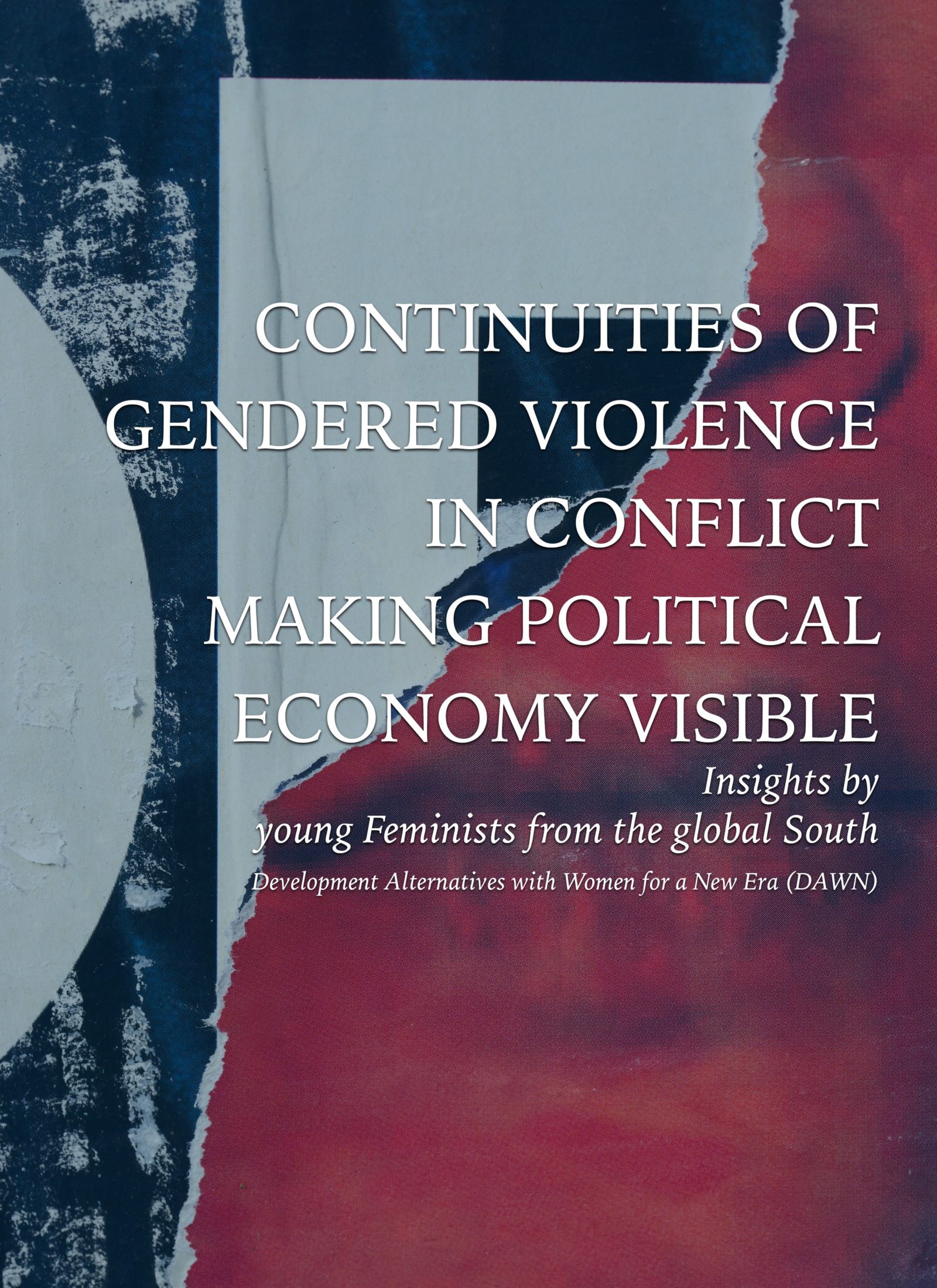“Political Economy of Conflict and Violence against Women” is a research project initiated by DAWN as a contribution to advancing advocacy and scholarship on gendered violence in conflict-affected regions of the world. This project commenced after collective reflection on prevailing ideas about conflict and violence that are central to peacebuilding discourses and praxis. Diverse understandings and articulations of conflict notwithstanding, a narrow perspective of conflict and violence continues to dominate peacebuilding analysis.
This project aims to advance a nuanced perspective on conflict and violence, through a broader, multidisciplinary and an interlinked ‘political economy lens’. We base this analysis on complex economic, social, political and cultural dynamics in various contexts, with special reference to some of the multilayed contexts of the global South. Through case studies of countries and areas both in conflict and post conflict in Mozambique, Palestine, South Africa and Liberia, we offer fresh perspectives on how violence against women is deeply embedded in local political economies of war, conflict and transition.
The case studies build on DAWN’s book The Political Economy of Conflict and Violence against Women: Cases from the South (Zed Books, London, 2019), a new collection addressing violence against women in conflict zones across the global South. This project deciphers entangled political, economic, social and ideological processes that produce conflict of which gendered violence is an integral part. The case studies can be best characterized as feminist interrogations of distinct political economies that demonstrate how sexual regimes and orders are linked to spaces of production.
In this series, we focus on four countries –Mozambique, Palestine South Africa and Liberia. The case studies shed light on a multiplicity of forms in which violence against women manifests in different contexts and at various levels. They provide a rich variation for the study of gendered and violent relations in political economies of conflict.

